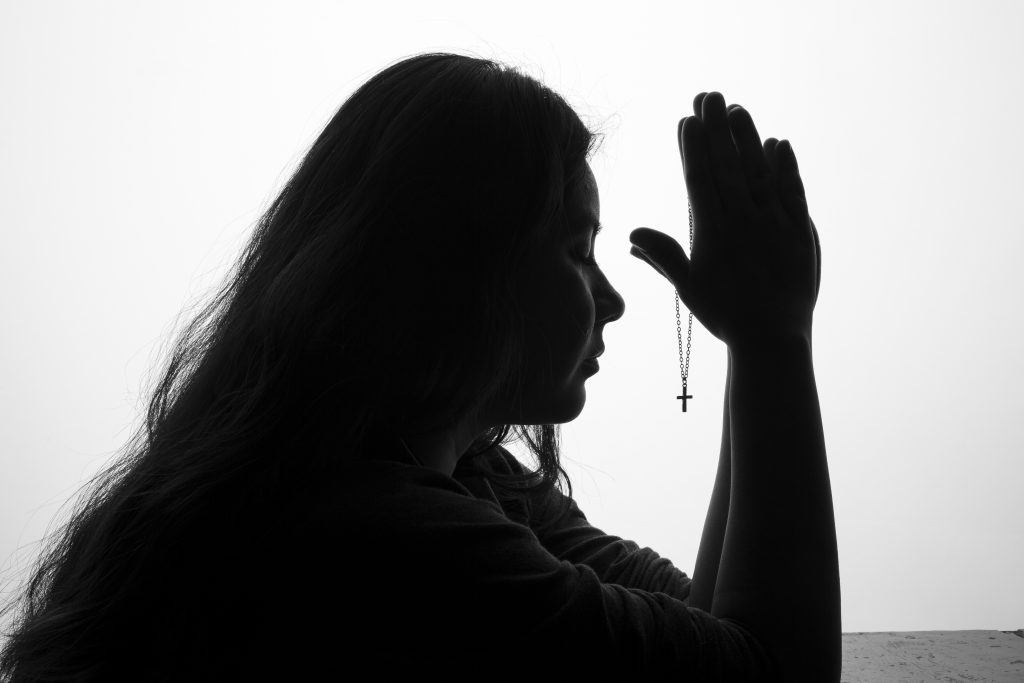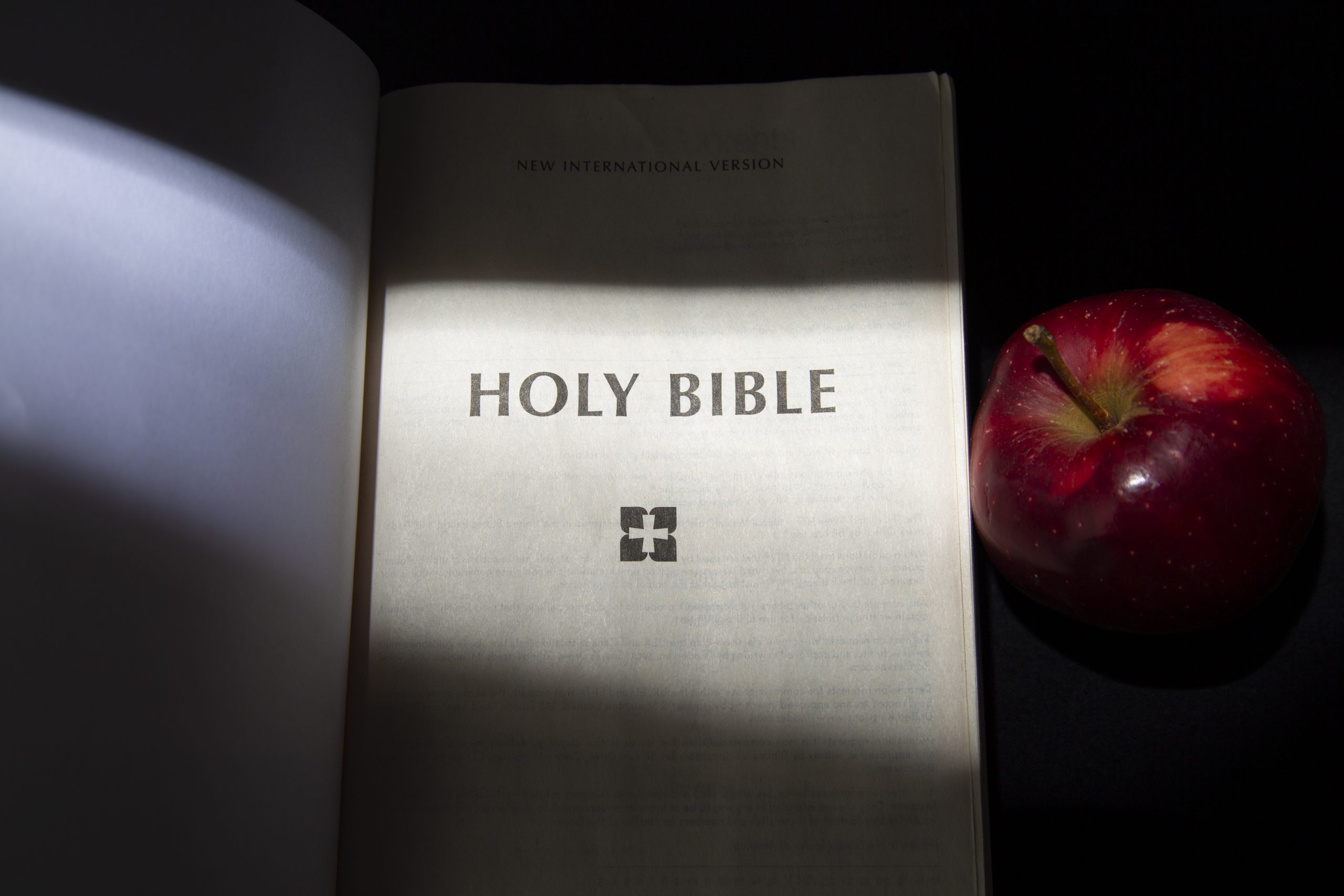
Fake News Seeps into Upstate New York churches
Local pastors are aiming to help their congregations be able to discern the truth with today’s issues.

astor Alicia Wood stood on the pulpit in an empty sanctuary encouraging everyone in her congregation to get vaccinated as they joined the service via Zoom.
It was February 2021, and the COVID-19 vaccine had been made available to most adults. The pandemic was entering its second year and the recorded COVID-19 death toll in the U.S. just surpassed 500,000.
From interacting with members of her majority-liberal congregation at the University United Methodist Church in Syracuse, Wood knew many parishioners thought the vaccine was important to get. But with all the disinformation circling around about the vaccine affecting women’s fertility, she took it upon herself to reiterate in her sermons and on Facebook why everyone should get vaccinated.
“Our goal was 95% of the congregation to be vaccinated, and we talked openly about that,” Wood said, adding that children were not yet eligible for vaccinations so 100% participation was not a viable target. “There was no backlash on that.”
Wood considers herself fortunate as she has a congregation receptive to her recommendations.
But Wood acknowledged that she and fellow church leaders in Upstate New York must deal with potentially toxic topics from public health to politics in recent years because of a prevalence of disinformation on social media, search engines and conservative news outlets.

Ed Stetzer, executive director of Wheaton College’s Billy Graham Center in Illinois, said conspiracy theories such as those espoused by QAnon “travel well on the tracks that religion has already laid.”
“Half of U.S. Protestant pastors, in a survey that we did, hear conspiracy theories in their churches,” Stetzer told the non-partisan Council on Foreign Relations. “Around one in eight strongly agree their congregations, or congregants are sharing conspiracy theories.
Churches at the national level have taken strides to be resources for better understanding the issues related to disinformation. The Episcopal Church published a guide in 2020 entitled “Misinformation, Disinformation, Fake News: Why Do We Care?” with more than a dozen articles addressing election fraud to climate change.
“The rapid expansion of digitalization and online platforms has enabled deceitful content to spread more rapidly and disguise itself more effectively,” the Episcopal guide reads.
Wood witnessed the effects of disinformation firsthand after her Methodist church put up a Black Lives Matter banner as a sign of support for the 2020 protests surrounding George Floyd’s murder.
A family left the congregation telling Wood that while they believed Black lives do matter, they didn’t align with Black Lives Matter. She said they’d seen information on Google about the harm and hate of the organization online.
“So I actually started Googling the name of a speaker they told me about who they said is part of Black Lives Matter, who’s said he wants to throw rocks at all the stained glass windows.”
“My first search, I didn’t find much, but then after I clicked on one of the links, and I read about it and realized these people had been reading disinformation,” Wood said.
When she went back to continue researching, Wood couldn’t help but notice that additional disinformation would pop up.

“It’s interesting how the algorithms within our searches give us more disinformation or information on what we may be what might want to find or might not want to find,” Wood said. “I’m thinking of my friends who had that information and went to search it, and all they found were things that backed up what they were already hearing, and to me, that’s very scary.”
Johanna Rehbaum, a pastor in the Rochester suburb of Pittsford, said she’s also seen her role as a religious leader at St. Paul’s Lutheran Church as an opportunity to educate people around her.
Driving through Upstate New York’s rural areas and seeing huge “Stop the Steal” and “F— Biden” signs, Rehbaum knows disinformation is circling. She and other religious leaders are determined to educate their congregations on issues to help combat the spread of disinformation.
“I know it’s very present,” Rehbaum said. “I know my colleagues that work in more outlying areas, not in Rochester, see that a lot more in their congregations.”
“I have definitely had some Republicans in my congregation, but they are thoughtful and considerate and not as easily duped by disinformation,” she said.
Jonathan Deibler, a pastor at St. John’s Lutheran Church in Victor and the dean of the Genesee Finger Lakes conference, said he doesn’t like to make generalizations but some churchgoers tend to hear things from conservative media outlets such as Fox News that are factually inaccurate. This, he believes, is problematic.
“You don’t know exactly how to handle them while still trying to be respectful to people,” Deibler said.
“It can be hard to hold a constructive conversation with people, and the political atmosphere is so charged that having constructive conversations can be difficult with people across the political spectrum,” Diebler said. “That’s a dynamic I find myself living in.”
